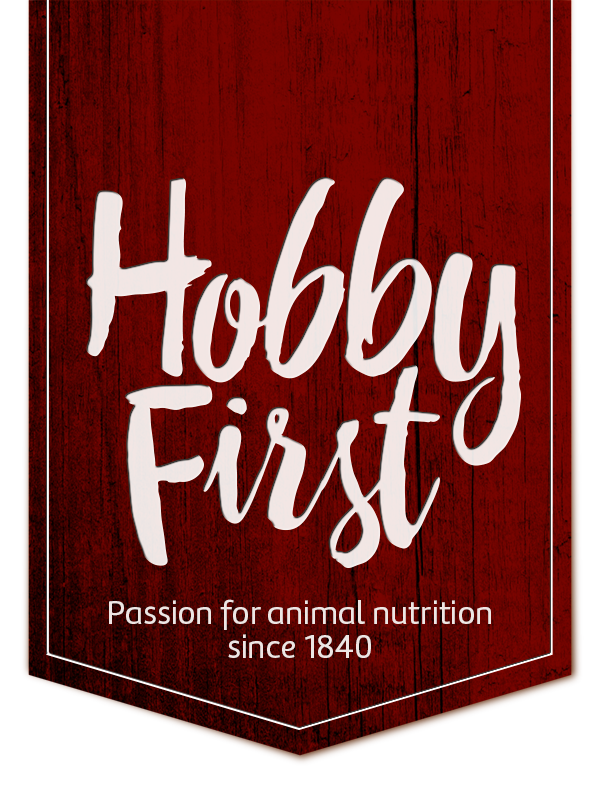The right feed for your chickens!

What feed is available for chickens?
There are different types of chicken feed available. It is important to know that chickens are true omnivores. This means that they ingest both plant and animal nutrients. Both are essential for healthy body function. What does a balanced ration for chickens consist of?
green feed
seeds
cereals
worms
insects
It is always best to choose a compound feed in which all the necessary nutrients are mixed. This compound feed forms the main meal. It comes in 2 forms: meal and pellets.
Laying meal and laying pellets form a complete meal for your chickens. They encourage healthy laying and ensure a firm eggshell. When your chickens are 6 months old, give them special laying feed or grain mixes enriched with laying feed.
There is also chick and starter meal. This is a special mixture for chicks that ensures good development. You give this from day one.
After about 8 weeks, switch to a rearing feed, such as the HobbyFirst Farm 2 Pellet, HobbyFirst Farm Bio Mash, HobbyFirst Farm Bio Pellet. This feed is going to promote growth.
There are also grain mixes, both in pellet and flour, with no added laying food. Such feed is useful if your chickens are not too big layers anyway, are moulting or are already a day older. Then they do not necessarily need the higher calcium content in laying feed.
What food is available for chickens?
And what can you give your feathered friends in addition to the main meal?
You supplement the grain mix and laying feed with food supplements that stimulate the intestinal flora, offer protection against parasites or supplements that ensure a healthy plumage.
Always provide fresh drinking water in the coop. Change the water daily, checking that your chickens are drinking enough.
Provide a small amount of chicken grit, stomach gravel or ground oyster shells at all times. Chickens need this to grind their food.
Grit improves digestion, makes egg shells stronger and ensures strong bones. Older birds and chicks that are not fed a laying diet need only a small portion of grit.
Snacks for chickens are also available, such as insect larvae, mealworms and river shrimps. Super fun for adults or children to give out of hand to your chickens! Feed your chickens the snacks in moderation and make sure they never replace the main meal.
Roughage provides the portion of necessary fibre for your chickens. If poultry do not have enough roughage, you can easily feed some extra alfalfa by adding the Farm Alfalfa Block.
Do you choose laying pellet or laying meal now?
When you bring in feed for chickens, you choose between pellet or meal. When your chickens lay eggs, you go for laying pellet or laying meal. Which feed do you choose for your chickens?
Both laying pellet and laying meal are complete chicken feeds. They give your hens the perfect foundation for healthy laying and good health. In flour, the ingredients are ground, in pellets they are compressed.
Your chickens spill less with the pellets, keeping the coop cleaner.
Young chickens (from 6 months onwards) eat flour more easily because they are also raised with flour. So flour is more familiar to them than pellets.
Can you give hens unlimited feed?
The best feed for chickens is not only balanced, but also always comes in the right portions for your feathered friends. So you should not give your chickens unlimited feed. The right portion depends on your chicken's age, breed, size and weight. On average, your chickens will eat 100 grams of dry food per day and per chicken. You can also always find the portion size on the food packaging.
Note: A hen needs more energy for intensive laying, but that doesn't mean she needs more feed. This is because her feed is very concentrated. Determine the right portions using the guidelines on the packaging.

